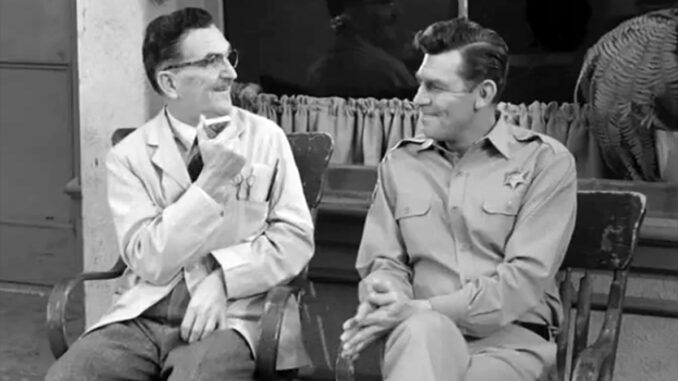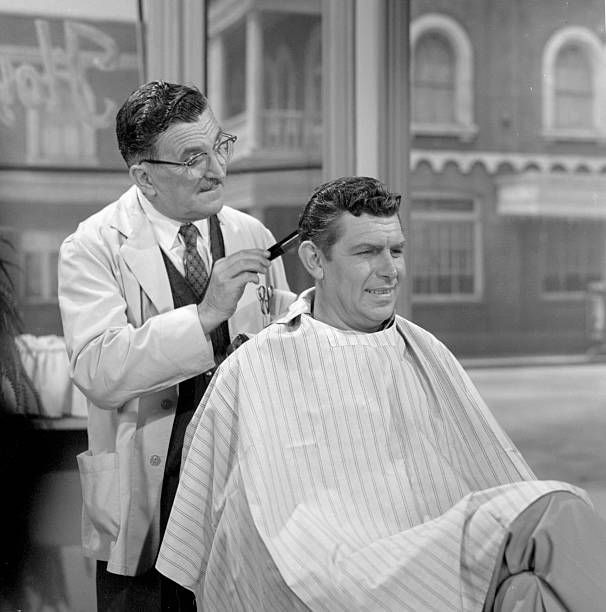
Introduction: Who Was Floyd the Barber, Really?
If you ever strolled down Mayberry’s quaint little streets in your imagination, chances are you popped into Floyd’s Barbershop. There, you’d meet the soft-spoken, slightly scatterbrained, yet endearing Floyd Lawson—better known as Floyd the Barber. But who was the man behind the shears? Howard McNear brought the character to life on The Andy Griffith Show, but there’s more to him than just haircut jokes and quirky banter. Let’s dive deep into 17 hair-snipping facts that reveal the real Howard McNear.
1. The Voice Before the Face: McNear’s Radio Legacy
Before television ever captured his face, Howard McNear was already a star—on the radio. He was a regular on radio dramas like Gunsmoke, voicing the beloved character Doc Adams. His smooth, authoritative delivery made him a staple of American radio.
2. Floyd Wasn’t His First Mayberry Character
Strange but true—McNear didn’t start out as Floyd. In fact, his first appearance on The Andy Griffith Show was as a completely different character in the episode “Mayberry Goes Hollywood.” Producers saw something in him and brought him back permanently—as the eccentric barber we all love.
3. He Modeled Floyd on Real Small-Town Barbers
McNear once revealed he based Floyd on a collection of real barbers he had encountered growing up. That’s why the character felt so authentic—he was a walking, talking blend of quirky small-town personalities.
4. Floyd’s Mannerisms Were McNear’s Own Invention
From the way Floyd tilted his head to his unique line delivery, those weren’t written into the script. McNear brought those quirks himself, making Floyd memorable and instantly recognizable.
5. McNear Was a Decorated WWII Veteran
You’d never guess it from his peaceful Mayberry persona, but Howard McNear served in the United States Army during World War II. He brought discipline, patience, and perhaps a bit of quiet reflection to his role as Floyd.
6. A Stroke Changed Everything—But Didn’t Stop Him
In 1963, tragedy struck. McNear suffered a major stroke that left the left side of his body paralyzed. For many, that would mean retirement. But the cast and crew of The Andy Griffith Show rallied around him, writing scenes where Floyd could sit or lean, hiding his condition as best they could.
7. Floyd’s Comeback Was a Television First
The way The Andy Griffith Show accommodated McNear post-stroke was unprecedented at the time. It showed early inklings of disability inclusion on television—a rarity in the 1960s.
8. McNear Had an Unshakable Work Ethic
Despite his condition, McNear showed up to work with enthusiasm. Griffith later said McNear hated sitting around doing nothing and loved being on set, even if he couldn’t do as much as he used to.
9. He Was a Method Actor—Sort Of
McNear didn’t use the term, but he lived and breathed Floyd. He often stayed in character between takes, muttering to himself or practicing his odd little chuckles, making his performance feel natural and real.
10. His Timing Was Impeccable
Comedy is all about timing, and McNear had it in spades. Even after his stroke, he nailed punchlines with perfect rhythm. His interactions with Don Knotts (Barney Fife) were often gold thanks to this.

11. McNear Was Beloved by His Co-Stars
Andy Griffith, Don Knotts, and Frances Bavier all adored McNear. They often described him as gentle, kind, and an absolute joy to work with. In an ensemble full of characters, Floyd brought a subtle warmth that balanced the show.
12. The Origin of “Hair-Snipping” Floyd
The phrase “hair-snipping” became synonymous with Floyd partly due to McNear’s exaggerated scissor-miming gestures. Though rarely shown actually cutting hair, it became his on-screen signature.
13. His Illness Led to Creative Camera Work
After his stroke, scenes were shot so cleverly that many viewers didn’t even realize he was partially paralyzed. Directors used over-the-shoulder angles, tight close-ups, and strategic positioning to maintain the illusion.
14. Floyd’s Exit Was Sudden—and Bittersweet
Eventually, McNear’s condition worsened, and he quietly exited the show in 1967. Rather than writing out the character in a dramatic way, the show simply stopped featuring Floyd in new episodes, which left fans wondering for years.
15. McNear’s Legacy Lives on in Pop Culture
You may recognize “Floyd the Barber” from the Nirvana song of the same name. It’s a testament to how deep McNear’s character embedded itself in American consciousness, even beyond the world of sitcoms.
16. Floyd the Barber Wasn’t Just Comic Relief
Sure, Floyd made you laugh. But he also represented something bigger—comfort, familiarity, and the trust you place in your neighborhood barber. McNear’s portrayal made Floyd the emotional glue of Mayberry in many episodes.
17. Howard McNear’s Final Years Were Quiet—but Respected
Howard McNear passed away in 1969 at the age of 63, just two years after leaving The Andy Griffith Show. Though his time as Floyd was short, his impact was timeless. Fans and peers alike still speak of him with admiration and respect.
Conclusion: Floyd May Be Gone, But He’ll Always Be Snipping in Our Hearts
Howard McNear gave the world a character who was more than just a small-town barber—he was a comforting presence, a gentle laugh, and the spirit of a simpler time. Through his brilliant performance as Floyd the Barber, McNear etched himself into television history. His work still makes us smile, proving that even the softest voices can leave the loudest echoes.
FAQs
1. Why did Howard McNear leave ‘The Andy Griffith Show’?
Howard McNear suffered a stroke in 1963 and eventually had to leave the show in 1967 due to complications with his health.
2. Was Floyd the Barber based on a real person?
Yes, McNear based the character on several barbers he encountered in real life, combining their mannerisms and quirks to form Floyd.
3. Did Howard McNear continue acting after his stroke?
Yes, he continued on The Andy Griffith Show for a few years post-stroke with significant support from the cast and creative filming techniques.
4. What was Howard McNear’s most famous role besides Floyd?
Besides Floyd, McNear was widely known as the voice of Doc Adams in the original Gunsmoke radio series.
5. Is Floyd the Barber mentioned in any modern pop culture?
Absolutely—Nirvana’s 1989 song “Floyd the Barber” was named after McNear’s character, showcasing his enduring cultural impact.